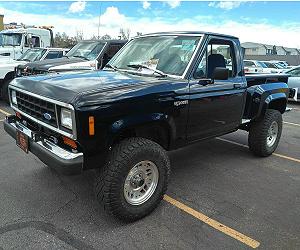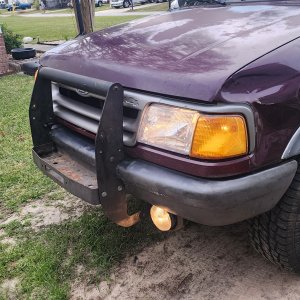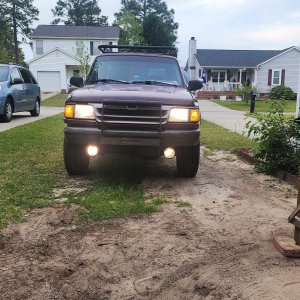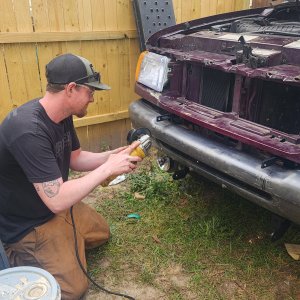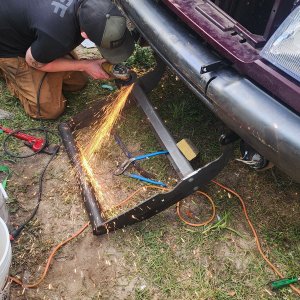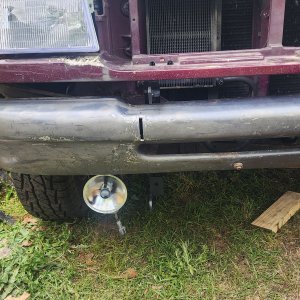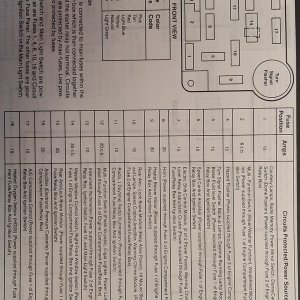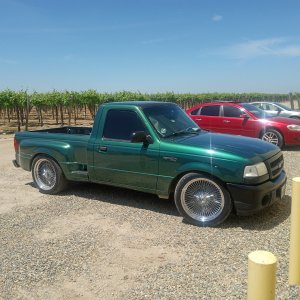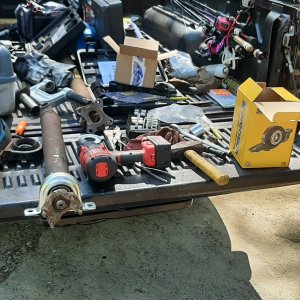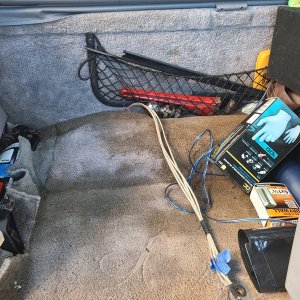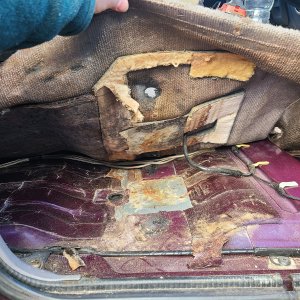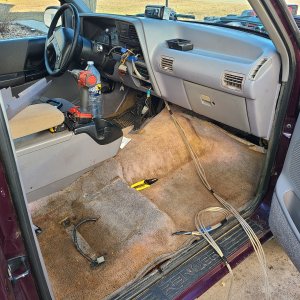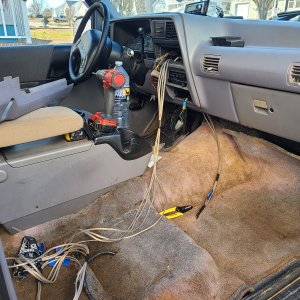It is/was pre-detonation, i.e. pinging/knocking
When you start to load an engine by accelerating or going uphill, the cylinders start to heat up, many notice temp gauge going up a bit while going up a long grade, very normal because............cylinders are running hotter.
Octane is a self ignition heat rating for fuel, 87 octane will self ignite at a lower temperature than 89 octane, which will self ignite and a lower temp than 91 octane, and so on.......
So as the cylinder temp rises it can reach a point where 87 octane will self ignite in the cylinder just before spark plug fires, pre-ignition, this can happen before piston reaches TDC so it actually slows the crank down instead of adding to it's spin, the no power thing.
The noise is from two or more ignition points in the one cylinder, the explosive wave fronts meet and make that metallic sound.
Diesel engines make similar noise and for the same reason, diesels don't use spark for ignition, it just uses heat, heat from very high compression, when the air/fuel mix enters the cylinder and is compressed, it reaches it's self ignition point, but there may be two or more ignition points, so explosive wave fronts meet and you hear the "ping".
However diesel engines are built very heavy duty because of the compression needed so the pinging is not "good" but a little won't hurt the engine.
OK back to gasoline, so pre-ignition is from cylinders heating up, and this pinging creates even more heat, so once it starts it will continue until you reduce the load, by backing off the gas or moving RPM to a better torque range, if your engine generates the best torque at 2,700rpms and you are lugging the engine uphill at 2,100rpms then it will heat up more, at 2,700rpm it doesn't have to work as hard so will cool a bit.
Then there are dirty injectors, injectors get dirty, some more than others, if an injector is passing a little less fuel than the others then that cylinder will have a leaner air/fuel mix.
Lean mix runs hotter, and it is also easier to self-ignite, so double whammy.
Run some injector cleaner in the gas tank once a year.
When cylinders get hotter NOx emissions go up, that's why EGR(exhaust gas recirculation) systems were added, adding exhaust to the intake when engine is under load causes a slower burn in the cylinders and this lowers the cylinder temp so less NOx is generated.
And since cylinder temps are lower.................chance of pinging is greatly reduced.
So if you have an EGR system make sure it is working.
Since you got no pinging on 93 octane then you can be sure it was "pinging" you were hearing.
if pinging seemed like just a few cylinders then for sure run that injector cleaner sooner than later.

